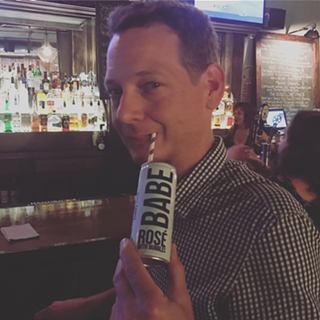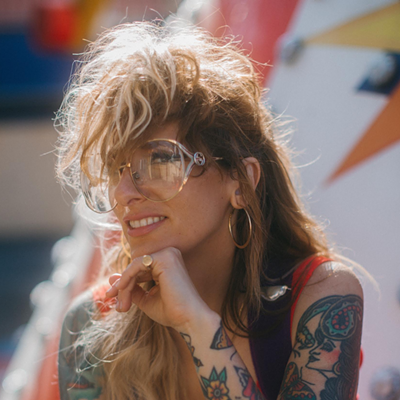Comedy Central, the basic-cable standard-bearer of funny, rode the late '80s/early '90s stand-up wave into existence. After weathering years of vapid sitcoms and empty nightclubs, the network went on to become a leading arbiter of intelligent leading-edge comedy. Along with parent company HBO, Comedy Central has enabled post-millennial big-cult success for a cadre of idiosyncratic comic personalities more interested in their art (and, in many cases, cultural and political awareness) than landing their own network sitcom. And, thanks to Jon Stewart, The Daily Show, and a particularly contentious election race - not to mention Chappelle's Show - the channel has recently enjoyed its highest mainstream profile since South Park first reared its ugly, pan-offensive head.
Among the careers deservedly boosted by Comedy Central's commitment to cult cool is that of New York comedian Dave Attell. Attell's creative and often outlandish take on traditional stand-up has long had him associated with the cream of the "alternative comedy" crop (see sidebar). But it was four seasons of drinking, smoking and one-lining his way through after-hours urban nightlife around the world as the host of the hit show Insomniac with Dave Attell that made him a household name - in households populated by college kids, stoners, diehard comedy fans and those afflicted with the program's namesake condition. Attell's quick wit and deceptively Dangerfield-esque everyman presence formed a perfect foil to the crazy, clueless or just plain hammered denizens of the dark he and his cameraman encountered while roaming various downtowns from dusk until dawn, and made for a compulsively watchable blend of reality TV and mockumentary.
On the eve of a Comedy Central-sponsored tour bringing his stand-up to theaters nationwide (including the Tampa Bay Performing Arts Center), Attell talks about his influences, Insomniac's uncertain future, and why he'll never abandon the comedy clubs where he honed his craft.
WP: When did you start doing stand-up?
DA: I've been doing it for about 18 years.
So you were working back when the late-'80s boom started to dry up?
I was actually working the door at [legendary New York City club] The Improv back then. It was pretty funny to watch it go from these big, full rooms every night to nobody standing in line.
Had you been a comedy buff before you started, when you were younger? Did you listen to stuff like [Richard] Pryor and [George] Carlin?
Oh, yeah. Absolutely. Those two guys especially.
You've got a really singular style, one that kind of uses the classic idea of setups and punch lines, but fucks with it at the same time…
Thank you.
Was it something you started doing immediately, or did you develop it over time working the clubs?
I guess it was just kind of a reaction to going on late at night. In New York, at the open mics, you kind of have to get to it quick. People had already sat through 50 comics, they'd heard all the set-ups and punchlines. They knew the formula.
It's also more interesting for me than doing standard stuff. I like to get the joke just the way I like it, then mess around with it, because I'm self-destructive [laughs].
Your stuff isn't as pointedly political as some other, um, for lack of a better term, we'll call them 'alternative comics.' But it seems like you share a fan base with people like David Cross, and you toured with Lewis Black back in 2003. Do you associate yourselves with those comics, with that school?
I like those dudes, I really love David Cross, but no, I'm not an alternative comic. I grew up watching people like Richard Jeni, straight-ahead national-headliner people. People who did jokes and bits. They weren't particularly political, they could just talk about anything and turn it into comedy … I love people like Bill Maher, who's an edgy, important person. [Real Time with Bill Maher] is a good, funny, wicked show. I have tons of respect for those people, but I'm not really political.
I'm more of a politically incorrect comic, because I still talk about race and drinking and the stuff that people don't talk about anymore. I try and talk about all of those things, which are getting harder and harder to talk about in conversation.
I really don't have an agenda. I'm not being 'Mr. Aw-shucks' about it. My politics are my own personal things; I think the people that do it really good should keep doing it, like Lewis, people who have a good take on the times, what's going on with the government. But for me, I'm more in the room. These people came out from a job somewhere, they're working, they go to school. I try to start from there, bring up the things that people that are half-drunk like to talk about.















